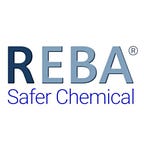Efficient Rust Removal from Stainless Steel Using Citric Acid Passivation: Discovering its Power
Rust can affect the structural integrity and aesthetics of stainless steel. Citric acid passivation has become a very successful strategy to address this problem.
In this blog post, we’ll look into the procedure for removing rust from stainless steel and examine the benefits of passivation with citric acid.
Contrary to what its name suggests, stainless steel is not completely resistant to rust.
Stainless steel can rust when exposed to moisture, oxygen, and specific impurities. This decreases the material’s endurance as well as its visual appeal.
The Strength of Citric Acid Passivation: Citric acid passivation is a powerful process that restores the corrosion-resistant qualities of stainless steel while also removing rust.
Citric acid’s characteristics are used by the passivation process to coat the metal’s surface with a layer of protection that prolongs its life and prevents additional rusting.
For the purpose of removing rust and preventing corrosion, citric acid passivation offers a number of benefits.
To start, it efficiently removes rust particles from stainless steel surfaces by making use of its superior chelating characteristics. Without harming the metal, this delicate yet effective operation enables complete rust removal.
The corrosion resistance of stainless steel is also improved by citric acid passivation. It creates an intensely adherent oxide layer on the surface, acting as a barrier against corrosive substances.
This coating serves as a protection, extending the lifespan of the metal and preventing further rust formation.
The environmental friendliness of citric acid passivation is a key benefit. Citric acid is a safer and more environmentally friendly alternative to conventional passivation techniques that rely on risky chemicals like nitric acid. It poses little dangers to both human health and the environment, is non-toxic, and biodegradable.
Citric acid passivation also has a wide range of industrial applications. It is appropriate for appliances, machinery, and even medical devices.
This technique is adaptable to a variety of stainless steel requirements, making it a dependable way for rust removal and corrosion control.
In conclusion, citric acid passivation is an environmentally benign method for removing rust and improving corrosion resistance.
Due to its adaptability, it is a useful method for maintaining the lifetime and toughness of stainless steel surfaces.
Utilizing the benefits of citric acid passivation, businesses and individuals can guarantee the best performance and durability of their stainless steel products without having to worry about rust.
Contact Us:
Reba Scientific Pty Ltd
Website: https://www.rebaaus.com/
Phone no: +61 3 8526 8252
Mail Id: sales@rebaaus.com
Address: 1 Redwood Drive, Notting Hill, Victoria 3168, Australia
